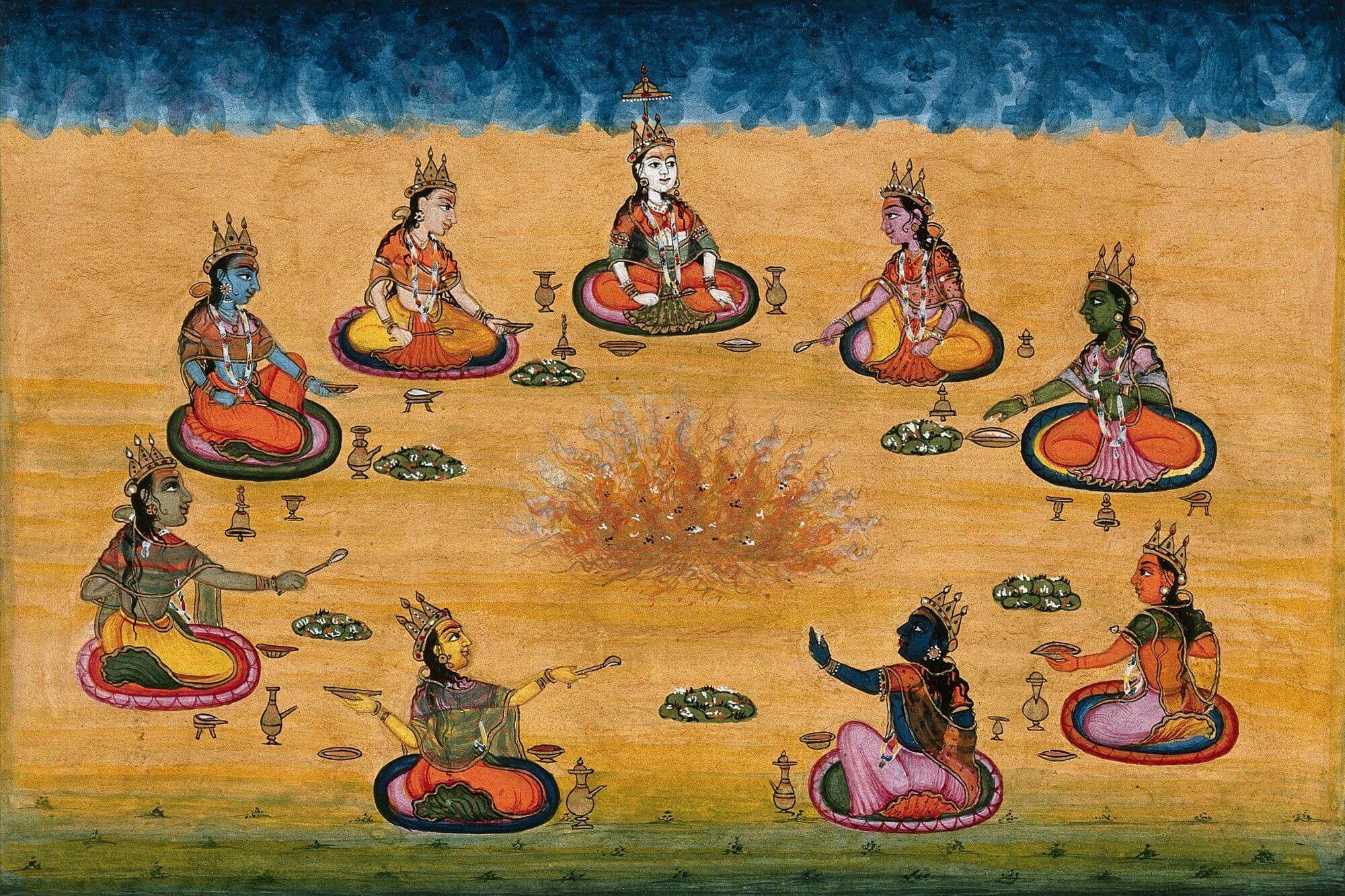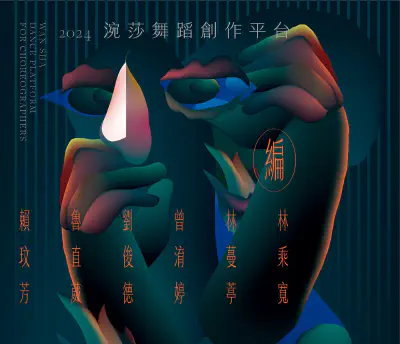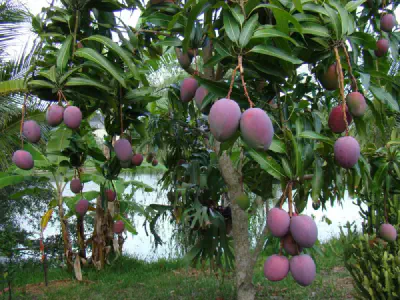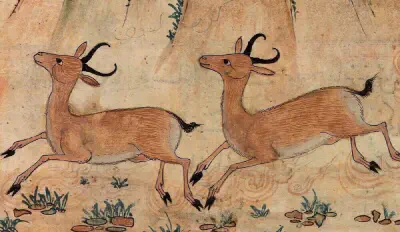Life
Gārgī Vācaknavī appears in the Bṛhadāraṅyaka Upaniṣad, a philosophical compilation that dates to around the seventh or the sixth century BCE, although it contains strains of material that may be much older. She is one of the earliest named women philosophers in the Indian tradition, and may have lived some time around 700 BCE. Her name Gārgī suggests she traced her lineage back to the sage Garga, and Vācaknavī means “eloquent”, coming from the word “vāc”, or speech.
Life and legend
We don’t have any reliable biography for Gārgī Vācaknavī. But we do have a fascinating account in the Bṛhadāraṅyaka Upaniṣad of the part she played in a palace debate about the nature of reality.
The debate was organised by King Janaka of Videha, who wanted to find out who among the scholars in his kingdom was most skilled in interpreting the Vedas, or the religious texts. To encourage the scholars to participate, King Janaka rounded up one thousand cows, tied ten pieces of gold to the horns of each cow, and offered the entire herd to the winner. But before the competition started, the cocky philosopher-sage Yājñavalkya — convinced that there was no contest — made off with the prize. Only a handful of other sages, among them Gārgī Vācaknavī, were willing to stand up to Yājñavalkya’s swagger.
Philosophy
What is fascinating about Gārgī Vācaknavī is not so much the conclusions that she draws, but the fierce style with which she goes about debating with the self-assured Yājñavalkya. She pursues her questioning, and her opponent, with a single-mindedness that still has the power to take your breath away.
Weaving the world
Gārgī begins the debate with a question: “Since the whole world is woven back and forth on water, on what, then, is water woven back and forth?” Over in Greece, Thales might find himself agreeing with Gārgī’s starting point, that the world is ‘woven’ on water. But Thales didn’t think to ask what Gārgī does: what, then, is water itself woven on?
Yājñavalkya doesn’t object to Gārgī’s premise that the world is woven on water; and her question at first doesn’t seem to trouble him. He remains cool and unruffled, and calmly replies that water is woven back and forth upon something else: air.
But Gārgī is not satisfied with this answer. She continues to push her questions further:
“On what, then, is air woven back and forth?““On the worlds of the intermediate region, Gārgī.““On what, then, are the worlds of the intermediate region woven back and forth…?” — Bṛhadāraṅyaka Upaniṣad, translated by Patrick Olivelle
And so it goes on. Until eventually, Yājñavalkya says that everything is woven back and forth on ’the worlds of brahman’ — the supreme reality.
The limits of argument
You might think that Gārgī would be satisfied with this; but she isn’t, and she wants to go still further. What, she presses, are the worlds of brahman woven back and forth upon? But at this point, Yājñavalkya simply refuses to answer. He tells Gārgī, “Don’t ask too many questions… your head will shatter apart!”
Why does Yājñavalkya refuse to play the game any further? Are there some mysteries about which you simply shouldn’t ask? Is Yājñavalkya’s response an attempt at a counter-argument, as if to say — like Wittgenstein a few millennia later — ‘Whereof one cannot speak, thereof one must be silent’? Or does gender play a role here? Has Yājñavalkya got fed up with being questioned by a woman, and resorted the threat of violence?
It is not clear. But whatever the reason, Gārgī doesn’t press the point. Instead, she falls silent — at least for the time being — and lets another speaker take the floor.
From debater to judge
But that is not the end of the story. Because shortly after in the debate, Gārgī speaks up again. This time, she doesn’t go head to head with Yājñavalkya directly. Instead, she turns to address the rest of the scholars. Okay, she tells them, I’m going to ask Yājñavalkya two questions.
The contemporary scholar Ravi Gupta points out that this subtle pivoting is momentous in its implications. It switches her role from being subordinate in a bullying debate to being a judge. Henceforth, Gārgī says, she will ask Yājñavalkya the questions; and she will adjudicate on whether his answers are in line with the truth or not.
So Gārgī Vācaknavī restates the question: what is this whole world woven on? And this time, Yājñavalkya responds by saying it is woven on space. Gārgī’s response is almost sarcastic: “All honour to you,” she says, “You really cleared that up for me!”
Then she moves on to her second question. The question is almost inevitable. What, she asks, is space woven on? And Yājñavalkya, on the spot, does his best to give a more sustained answer. He says that space is woven on the “imperishable”: the mysterious underlying reality of all things that is “neither coarse nor fine, neither short nor long.” And he gives a short discourse on this “imperishable”, this thing that, he claims, is the source of all things, and of all order in the world.
When Yājñavalkya has finished speaking, Gārgī now turns to the audience. They are waiting for her to pass judgement on Yājñavalkya’s answer: is he speaking the truth, or is he spouting nonsense? You can almost feel the tension of the moment before Gārgī speaks. But then she hands down her judgement: Yājñavalkya is right, she says. Not only this, but the other sages should consider themselves lucky if they never have to debate with him, for they will never defeat him.
Her judgement is finely honed, and perhaps once again laced with sarcasm. Gārgī has affirmed Yājñavalkya’s words. But the cost to her former opponent is great. He has surrendered his authority to the eloquent Gārgī. She has set herself up as the arbiter of what it true, and what is not. And even though the cocksure Yājñavalkya gets his gold-bedecked cows to take away, it is, presumably, with a deflated sense of his own powers in debate, and of his own importance.
Further Reading
Books
There are many translations of the Upaniṣads available. I like Patrick Olivelle’s The Early Upaniṣads: Annotated Text and Translation (Oxford University Press 1998), which has a nice balance of scholarship and readability.
Signe Cohen’s The Upaniṣads: A Complete Guide (Routledge 2018) is a great introduction to these fascinating texts.
Online Resources
This is an interesting piece from Aeon Magazine on the role of women in early philosophy outside of Europe.
The story of Gārgī’s debate is a bit more complex than suggested here. For a fun dive into the debate’s finer nuances, listen to the What’s Her Name Podcast on Gārgī with Ravi M. Gupta, and learn how Gārgī shows us how to handle social media debates.



